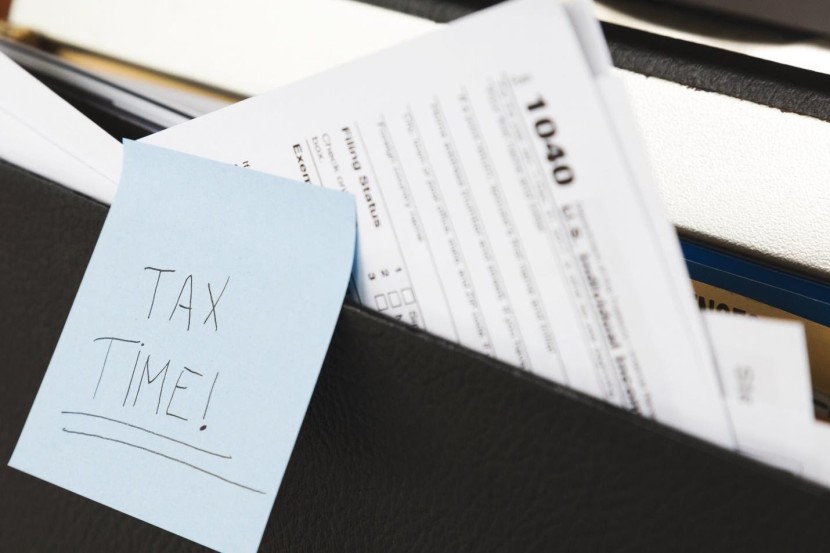
Taxes. For a lot of people, everything to do with filing their taxes is stressful. But for those expecting a refund this year, the stress may be worth it.
Last year, nearly three-quarters of Americans received an average refund of around $3,000. That's a considerable chunk of change.
A tax refund windfall gives a pleasant boost to your budget, but it's easy to go spend it all in celebration on things you don't need. If you don't want to pour money down the drain, keep scrolling. Here are four smart and responsible ways to use your return this year.
1. Pay off Your Line of Credit or Credit Card
Lowering the balances on these revolving accounts is a great idea. Even if you don't have enough to get them down to a cool zero, paying off some of your outstanding debts has its perks.
Pouring your tax refund into a line of credit or credit card may mean you're making more than the minimum payment. This is a fantastic strategy according to the experts at CreditFresh. Making payments above your minimum not only reduces your balance, but it may also reduce your interest charges.
If you have a bad credit personal line of credit, which often has a high APR, paying as much of your full balance as you can helps manage how quickly this interest balloons.
Seeing your balances go down in these revolving accounts can be empowering. Ride that high to focus on another personal loan or line of credit.
Just make sure these accounts don't apply early or additional payment penalties. Some financial institutions may charge you extra for making payments beyond the ones made in your loan agreement.
2. Beef up Your Emergency Fund
Squirreling away a bit of money for a rainy day is just smart money management. Life has a habit of throwing you curveballs, and they usually come with big bills. Your car breaks down, your kids get sick, and your house needs repairs. How will you pay for them?
Having more cash in this fund gives you a chance to handle these unexpected expenses without needing to apply for a personal line of credit.
For it to be effective against your next emergency, financial pundit Rachel Cruze suggests saving between three to 12 months' worth of expenses. This has become the golden rule of rainy day savings, although you may want to tweak it to fit your unique situation.
For most people, six months of expenses would help cover an unexpected expense, or it could help them pay bills if a medical emergency or layoff prevents them from working. You may want to boost your goal if you live with a chronic illness, work in a volatile industry, or face other challenges that increase the risk of these emergencies.
Normally, the path to saving this much money may be a slow one, but your refund promises a shortcut.
If you're coming close to your goal, consider switching your savings account. A regular saving account earns a small amount of interest. And in many cases, it ends up being less than inflation, which means you'll actually lose money the longer you keep it there.
A high interest account, or even some modest investments, may generate more money for you.
Just remember that you may need to tap into this account at a moment's notice, so pick a high-interest account that won't penalize you for making a withdrawal.
3. Invest in Your Home
If you already have a decent emergency fund and no line of credit debt to speak of, you may be tempted to splurge on something fun. But before you book your flight to Mexico or buy a new entertainment system, think about smart investments. Are there any minor upgrades you can make to your home that will save you money?
Using your refund on your home comes with a couple of perks. Firstly, any upgrades you manage to pull off will increase its value. You'll eventually get this money back when you finally put up your house to sell.
But these upgrades may start lining your pockets well before you put your home on the market. Take old, leaky windows for example. The U.S. Department of Energy estimates upgrading them to double-pane windows may save as much as $465 in energy bills.
Even smaller jobs promise a big payoff. Just switching your incandescent light bulbs to CFL bulbs could shave off money in your next bill. Each CFL bulb saves about $40 in energy savings before it burns out.
Think Before You Splurge
It's easy to think of a tax refund as free money. But it isn't, so don't let it burn a hole in your pocket like it is.
Before you splurge on the fun stuff, consider what this windfall can do to help your finances. Whether it's paying off a line of credit or investing in your home, these choices will have a more lasting impact on your financial health than any splurge can.
If the big check is too tempting to ignore, consider adjusting the tax withholdings on your W-4. You'll have less tax withheld during the year, giving a minor boost to your take-home pay with each paycheck.
Either way, your tax refund can do a lot of good if you use it wisely.
© 2025 HNGN, All rights reserved. Do not reproduce without permission.








